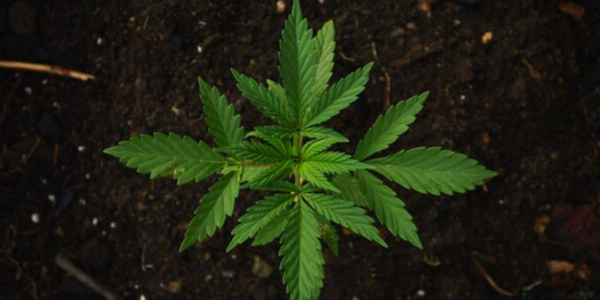
Consumer packaged goods containing Cannabidiol (better known as CBD) are all the rage these days. Eroding prohibition of Cannabis and Hemp has inspired a "Green Rush" of companies and products into this new marketplace, and if you are reading this article there’s a good chance you’ve already hopped on the bandwagon. Yet with this new opportunity comes a shifting maze of regulations and compliance issues. What many CBD suppliers may not realize is that while some CBD is now legal, not all CBD is legal. Similarly, not all uses of CBD (and not all branding and marketing of CBD products) are legal.
Avoiding regulatory pitfalls presented by policies stemming from federal agencies like the US Food and Drug Administration (FDA) and the Federal Trade Commission (FTC), as well as state and local authorities can be a matter of life and death for a young brand. Recent history shows that non-compliance can yield dire results.
Participation in this emerging space requires a certain risk tolerance from the start. That said, success for your CBD brand requires that you take steps to mitigate as much risk as possible. Like with many other facets of your business, the best first step would be to find an attorney with the depth of experience to help you navigate this developing legal landscape. In the meantime, it will benefit you to know what issues you need to consider in making sure your CBD products are up to speed with the requirements of major retailers.
Ask yourself these key questions when creating your CBD products:
1. Where does your CBD come from?
This is a big one. The source of the CBD included in your various goods is the dividing line between a federally-legal product that can qualify for mainstream distribution and a federally-illegal product that can only be sold through licensed dispensaries regulated under state law. Simplified, this is a question of whether or not your CBD is derived from “Hemp” or “Marijuana”. Both byproducts originate from strains of the Cannabis plant (specifically, Cannabis Sativa L), so sorting out these crucial definitions can be a bit tricky. It all banks on the levels of Tetrahydrocannabinol (THC), the psychoactive cousin of CBD, found in the source plant. If you don’t know if your CBD is coming from a plant with a THC concentration of no more than .3% (on a dry-weight basis), then it’s time to find out!
2. If your CBD comes from “Hemp,” who is growing it?
The CBD in your products needs to be “Hemp”-derived to be federally compliant, but the “Hemp” it was derived from also needs to be grown by, and sourced from, a compliant cultivator. The 2018 Farm Bill that effectively legalized CBD leaves the issue of legal cultivation to programs established by individual states. A year-long grace period has been enacted to allow for the development of such programs, but you will want to confirm that your supplier of raw material is approval-ready within its state of operation well in advance.
3. What do your marketing and advertising look like?
While you will certainly want to clear and protect your brand via Trademark (another tricky proposition when it comes to CBD products), other branded material, including your marketing and advertising, can be a huge sticking point. The FDA and FTC, in particular, are policing the market for companies making “unsubstantiated therapeutic claims” in connection with their CBD products. With policies still in flux, the line between legal and illegal claims is blurry. A proper review of your content is a must.
The world of CBD is an exciting one, with plenty of potential and upsides. As with many consumer goods markets, it requires its own standard of diligence. When it comes to legal help, seek an expert in the field to ensure your brand is primed to prosper.
You can find all of RangeMe's Legal Providers here!
--------------------
About the Author
 |
Law Offices of James P. Marion, Esq. (JPM) is a boutique intellectual property and business law firm offering custom services to assist new and established brands in a wide range of CPG markets. For the past six years, JPM has been at the forefront of developing law connected to Cannabis and Hemp/CBD brands nationwide, working with many of the industry’s trailblazing innovators. With JPM you are represented by attorneys who understand this unique and highly regulated space. Contact us for a free consultation to discuss how we can help with business formation, regulatory review, and compliance, as well as trademark and other intellectual property protection. |

Comments
0 comments
Please sign in to leave a comment.